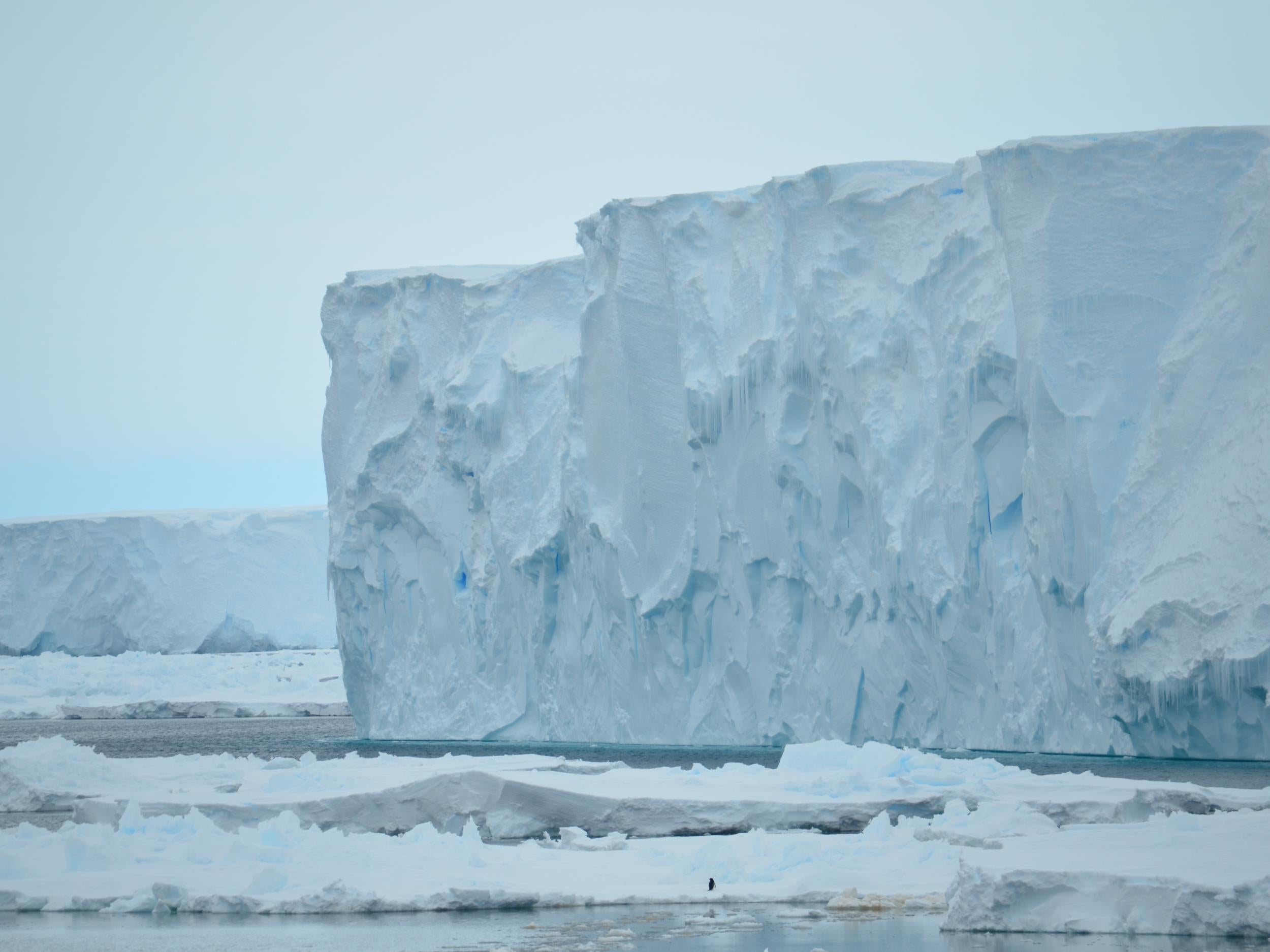Sea levels could be rising faster than predicted due to new source of Antarctic ice melting
Scientists find processes that 'feed off each other to further accelerate climate change’

Sea level rise could be happening at a faster rate than previously thought, as scientists have identified a new source of melting ice in Antarctica.
Melting glaciers can create a positive feedback loop in which the more they melt, the more they drive further melting, according to the Australian team.
They predict that the processes they identified could be playing a role in accelerating both sea level rise and climate change.
As glaciers melt, they produce fresh water. When this meltwater enters the ocean surrounding the glacier it makes the surface layer less salty and therefore more buoyant.
This leads to a layer of water floating on the surface, and prevents the natural mixing of the ocean.
The lack of mixing becomes a problem during winter, as it prevents warm water at greater depths from mixing with cooler water above.
With a pool of warm water underneath them, the melting of the bottom side of the glaciers accelerates.
“This process is similar to what happens when you put oil and water in a container, with the oil floating on top because it’s lighter and less dense,” said Alessandro Silvano, a PhD student at the University of Tasmania who led the research.
“The same happens near Antarctica with fresh glacial meltwater, which stays above the warmer and saltier ocean water, insulating the warm water from the cold Antarctic atmosphere and allowing it to cause further glacial melting.
“We found that in this way increased glacial meltwater can cause a positive feedback, driving further melt of ice shelves and hence an increase in sea level rise.”
10 photographs to show to anyone who doesn't believe in climate change
Show all 10The research was published in the journal Science Advances.
It comes shortly after analysis by a team at the University of Leeds found an area of underwater ice the size of Greater London had melted from the bottom of the region’s ice shelves in just five years.
Ice shelves currently act as structural support, holding the Antarctic ice sheet in place.
Warm waters flowing underneath these shelves will diminish this support as they cause them to decline and fragment.
Other studies have demonstrated that the “catastrophic collapse” of areas like the West Antarctic ice sheet have the capacity to raise global sea levels by more than three metres.
The study by Mr Silvano and his colleagues also found that the injection of cold water from melting glaciers was causing currents to slow down in the Antarctic region, affecting the storage of heat and carbon dioxide.
“In combination, the two processes we identified feed off each other to further accelerate climate change,” said Mr Silvano.
Melting water from Arctic sea ice was recently highlighted as an issue due to the role it appears to be playing in the decline of the Gulf Stream current, which researchers think has slowed down by roughly 15 per cent.
A similar mechanism to the one described in the new study has previously been suggested as the driver of rapid sea level rise that is thought to have taken place around 15,000 years ago.
However, work by Mr Silvano and his collaborators has demonstrated this is an issue that still has relevance today.
“Our study shows that this feedback process is not only possible but is in fact already under way, and may drive further acceleration of the rate of sea level rise in the future,” he said.
Subscribe to Independent Premium to bookmark this article
Want to bookmark your favourite articles and stories to read or reference later? Start your Independent Premium subscription today.

Join our commenting forum
Join thought-provoking conversations, follow other Independent readers and see their replies